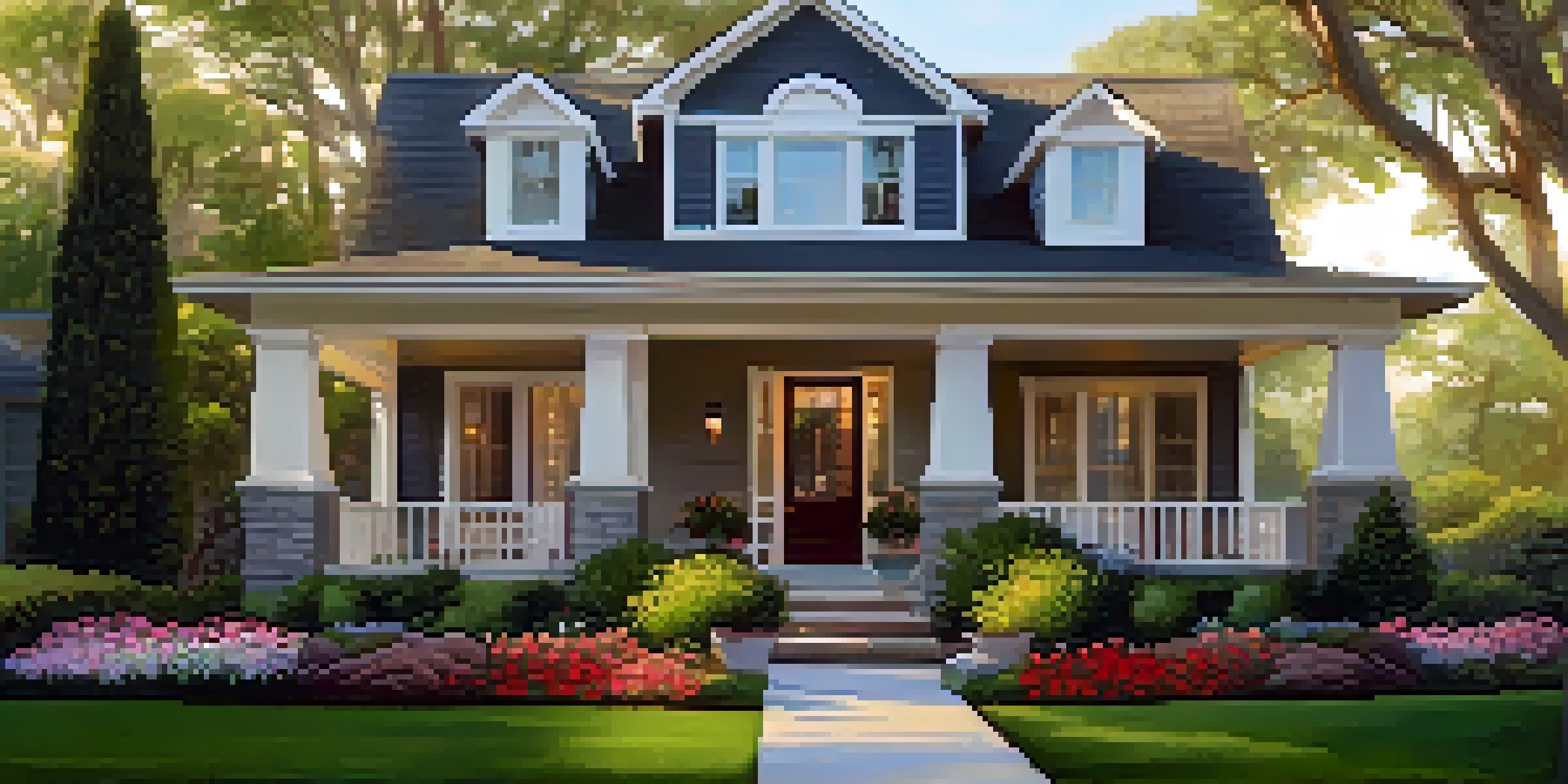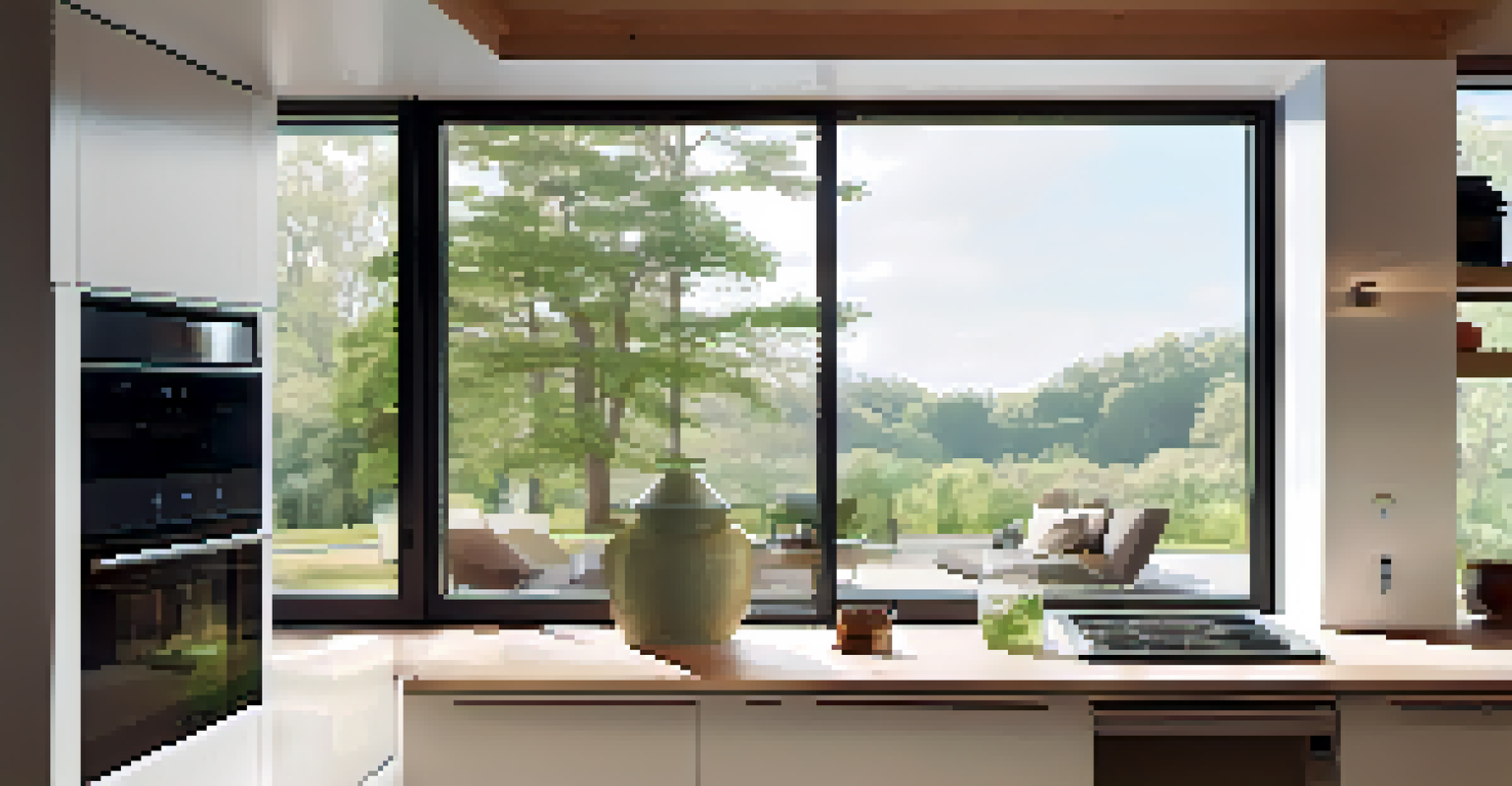Top Strategies for Maximizing ROI in Home Renovation Projects

Understand Your Local Real Estate Market Trends
Before you dive into renovations, it's crucial to understand the local real estate market. Each neighborhood has unique trends that can significantly impact your home's value. For example, if your area is known for modern finishes, investing in sleek, contemporary updates will likely yield better returns.
Home improvement is not just about improving your home; it’s about creating a space that reflects who you are and what you love.
Keeping an eye on what homebuyers in your area prioritize can also guide your renovation choices. If families are flocking to your neighborhood, consider adding extra bedrooms or improving outdoor spaces. These features often attract buyers willing to pay a premium.
Ultimately, aligning your renovation plans with the preferences of potential buyers can maximize your return on investment. Research local listings and attend open houses to get a feel for what’s working in your market.
Focus on High-Impact, Low-Cost Improvements
When it comes to renovations, not all projects are created equal. High-impact, low-cost improvements can dramatically enhance your home's appeal without breaking the bank. For instance, a fresh coat of paint or new landscaping can transform the look of your property while being relatively inexpensive.

Consider updating fixtures like doorknobs, faucets, and light switches, which can modernize the feel of your home with minimal investment. These small changes often create a big impression and can elevate buyer interest.
Know Your Local Market Trends
Understanding local real estate trends helps tailor renovations to what potential buyers want, maximizing your home's value.
Remember, it's about making smart choices that enhance the overall aesthetic and functionality of your space. Prioritize projects that offer the best return in terms of both cost and appeal.
Enhance Curb Appeal for Immediate Attraction
First impressions matter, especially in real estate. Enhancing your home's curb appeal can significantly increase its market value. A well-maintained lawn, attractive landscaping, and a clean exterior can draw potential buyers in before they even step inside.
The best investment on Earth is earth.
Simple upgrades like a new front door, fresh paint, or attractive house numbers can go a long way in making your home stand out. Consider adding outdoor lighting or decorative elements that reflect your style as well.
Investing in curb appeal is like putting on your best outfit for an important meeting; it sets the stage for what’s to come. The more inviting your home looks from the outside, the more appealing it will be to potential buyers.
Consider Energy-Efficient Upgrades
In today's eco-conscious market, energy-efficient upgrades can be a game changer. Installing energy-efficient windows, appliances, and HVAC systems not only lowers utility bills but also makes your home more attractive to buyers who prioritize sustainability.
These upgrades can also qualify you for tax credits or rebates, providing an additional financial incentive. Plus, homes with energy-efficient features often sell faster and at higher prices.
Focus on Cost-Effective Upgrades
High-impact, low-cost improvements, such as fresh paint and updated fixtures, can significantly enhance your home's appeal without overspending.
By investing in green upgrades, you're not just renovating; you're also contributing to a more sustainable future. This dual benefit can significantly boost your ROI.
Open Floor Plans: Create a Modern Living Space
Open floor plans have become increasingly desirable among homebuyers. By removing unnecessary walls, you can create a spacious, inviting environment that feels modern and adaptable. This layout fosters better flow and allows for versatile use of space, which many buyers find appealing.
If you're considering a larger renovation, think about how an open floor plan can enhance your home. Even minor adjustments, like widening doorways or opening up the kitchen to the living area, can make a significant impact.
As you think about your remodeling projects, keep in mind that flexibility in living space can be a major selling point. Buyers appreciate homes that can easily accommodate changing lifestyles.
Don’t Over-Renovate Beyond Neighborhood Standards
While it's tempting to go all out on renovations, over-improving your home can hurt your ROI. It's important to stay within the standards of your neighborhood. For instance, if most homes in your area are modest, investing in high-end finishes may not yield the returns you're hoping for.
Before you start major renovations, assess the value of similar homes in your area. This will give you a clearer picture of what buyers expect and what they’re willing to pay. It can also help you avoid costly mistakes.
Avoid Over-Improving Your Home
Staying within neighborhood standards is crucial, as over-renovating can diminish your return on investment.
Remember, the goal is to enhance your home’s value without pricing it out of the market. Finding that balance is key to maximizing your return on investment.
Hire Professionals for Quality Workmanship
When it comes to renovations, quality matters. Hiring professionals ensures that the work is done correctly and up to code, which can protect your investment in the long run. Poor workmanship can lead to costly repairs later and may even deter potential buyers.
Additionally, professionals often bring valuable insights into what works best for your space. Their expertise can help you avoid common pitfalls and make the most of your renovation budget.

Investing in skilled labor might seem like a high upfront cost, but it pays off by enhancing the quality and appeal of your home. In the competitive real estate market, a professionally renovated home stands out.